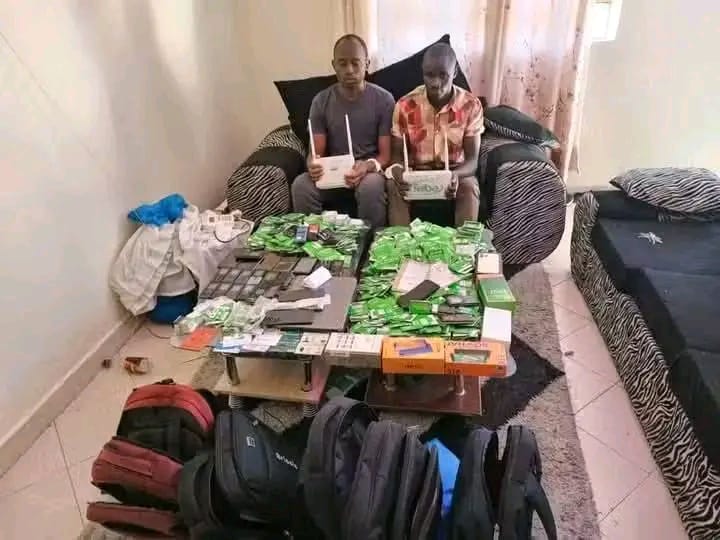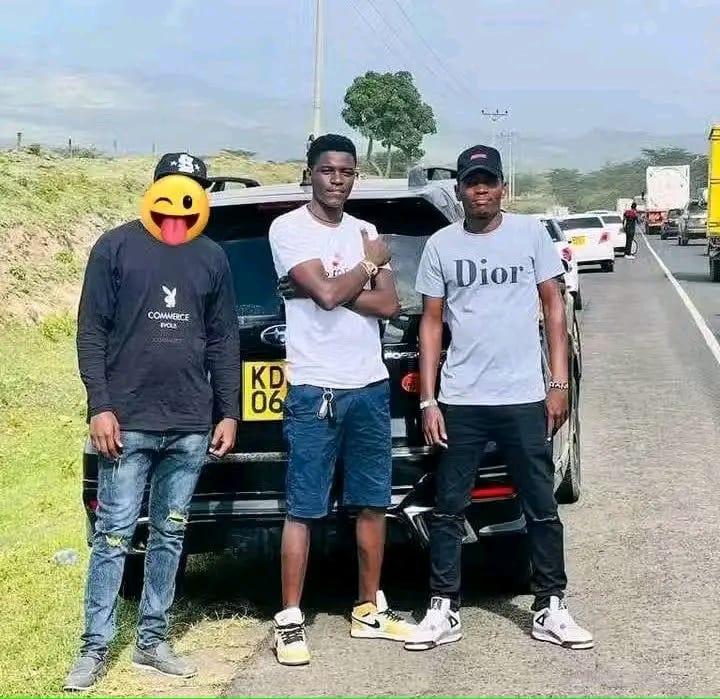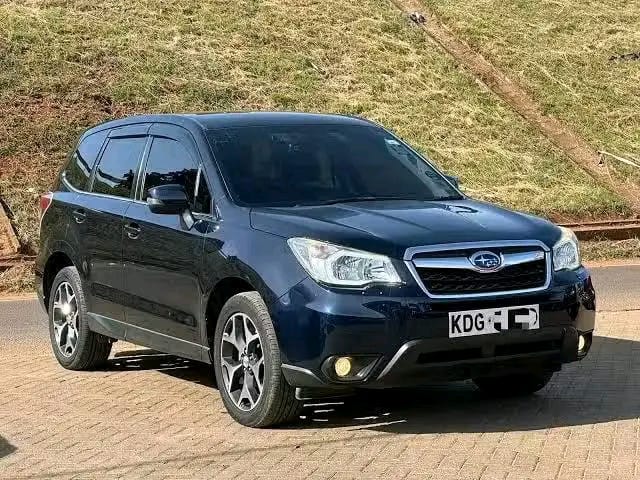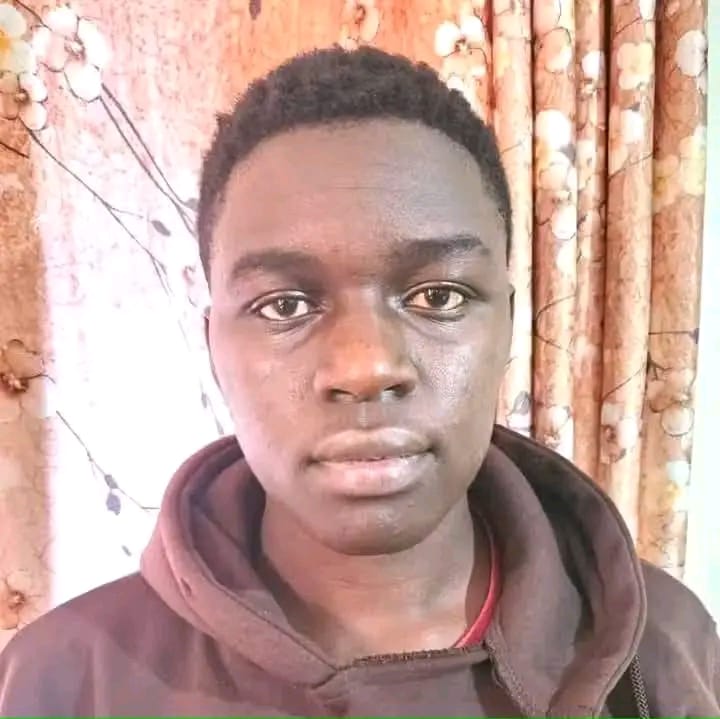The Shocking Story of Gideon Kipkurui Rono: A Gen Z Mastermind Behind the Ksh 449 Million Fuliza Scam
While many Kenyans were dealing with the tough effects of COVID-19 in 2020 — including lockdowns and job losses — a young man from Bomet County was stepping into a life of luxury and fast money.
That man was Gideon Kipkurui Rono, a student from Egerton University. On July 20th, 2020, he pulled off a major heist that would set him on a new path. The very next day, armed with Ksh 143,000 in cash, he confidently walked into Nakuru Equipment Supplies and bought his first ever motorbike — a Bajaj Boxer KMFZ 526E.
But this bike wasn’t for work like most other buyers’ bikes. For Giddy, as he was nicknamed, it was just for cruising around the neighbourhood in style. Why? Because he had discovered a different and much more profitable “hustle” — one that earned him another big payday just weeks later. On September 2, 2020, he returned to buy a second motorbike, paying Ksh 90,000 in cash.

The seller was impressed, believing business must be booming for this young man. And it was — but the booming business was actually a brilliantly orchestrated mobile money fraud that had just begun.
The Fuliza Scam Begins
Gideon created a new kind of identity theft operation, one so clever that the actual victims didn’t even know they were being used. Coming from Bomet, where the infamous Mulot Gang had made headlines, Giddy had seen how dangerous it was to live on the run. He decided to be smarter and more calculated.
He started by collecting lost ID cards from various spots in Bomet town where people often left them. He then purchased a Safaricom MobiGo machine, which is used for SIM card registration.

Using these lost IDs, Giddy began registering new SIM cards, enrolling them in the Fuliza loan service.
Each ID allowed him to register five different lines. If he had 50 ID cards, that meant 250 SIM cards. For every line, he would borrow at least Ksh 300, transfer the money to his own number, and then discard the SIM card within a few days.
He repeated this cycle for weeks, slowly building a network of SIM cards and collecting the money. By September 2020, after buying two motorbikes, it was clear the scam was growing and could now operate on a larger scale.
Expanding the Network
The only thing limiting his growth was access to more ID cards. To expand faster, Giddy brought in friends. The first person he contacted was Isaac Kipkemoi, a third-year student at St. Paul’s University. Although Isaac was stuck in Limuru due to COVID travel restrictions, he was so impressed with Giddy’s plan that he connected him to someone else.
That someone was Nelson Kamau, a known SIM swap expert. Nelson introduced Giddy to Peter Gitahi, an IT guru living in Trans Nzoia. Peter had access to Kenya’s National Registration Bureau data, which allowed him to create fake ID cards. With the help of 13 Safaricom MobiGo machines, Peter used the fake IDs to register thousands of SIM cards.
He then sold the active SIM cards to Giddy, significantly cutting down the cost of operations. Now all Giddy had to do was activate Fuliza loans, collect the money, and move on to the next set of SIMs.
The Operation Goes Full Throttle
With a reliable source of SIM cards, Giddy partnered with Nelson Kamau. They moved operations to Nakuru and rented a house in Kiamunyi Estate, which became their headquarters. Together, with a few other trusted friends, they registered thousands of SIM cards, activated Fuliza loans, and raked in millions.

By the end of 2020, their cash flow was so strong that they decided it was time to start using bank accounts.
Money Laundering Through Bank Accounts
On February 5, 2021, Giddy walked into Family Bank in Nakuru and opened an account with just Ksh 1,000. For about three weeks, nothing happened. But starting February 22, that account began receiving up to 90 deposits daily, ranging from Ksh 22,000 to Ksh 100,000 — all from different MPESA lines.
This triggered alarm within the group. They knew banks might get suspicious and flag the account. To stay ahead, other senior members of the gang also opened accounts.
On March 23, 2021, Nelson Kamau and another member, Edwin, opened their own Family Bank accounts. These accounts were used only to receive and withdraw the stolen Fuliza cash.
Isaac Kipkemoi joined in too. On May 5, he opened his account, and by May 26, it received 244 deposits ranging between Ksh 1,000 and Ksh 87,000. These were then transferred in smaller chunks of about Ksh 200,000 and withdrawn by mules.
Living the High Life
On July 7, 2021, Giddy opened a new account at Co-operative Bank with Ksh 7,500. Just three weeks later, he deposited Ksh 1.42 million using his phone and nine other numbers. He withdrew the entire amount on August 4 to buy a new ride — a sleek Subaru Forester, number plate KDD.

A day later, on August 5, Giddy and Isaac traveled to Mombasa. Isaac had just received Ksh 1.36 million, and he used it to buy a Toyota Mark X from Bhinder Corporation Ltd.
Not wanting to be left out, Nelson Kamau bought his own Subaru Forester (KDG 972S) on January 24 after his account was credited with Ksh 1.87 million. Just two days later, another gang member, Jones, followed suit and bought his own Subaru.

Conclusion
What started as a clever SIM card scheme turned into one of the most organized mobile money heists in Kenya’s history. Gideon Kipkurui Rono and his crew stole Ksh 449 million from Safaricom using identity fraud and Fuliza loans — all while living large and claiming to be “farmers.”

The story of this Fuliza gang is a chilling reminder of how cyber fraud and identity theft have evolved — and how quickly they can spread when tech meets crime.
Join Our Political Forum official 2025 WhatsApp Channel To Stay Updated On time https://whatsapp.com/channel/0029VaWT5gSGufImU8R0DO30


